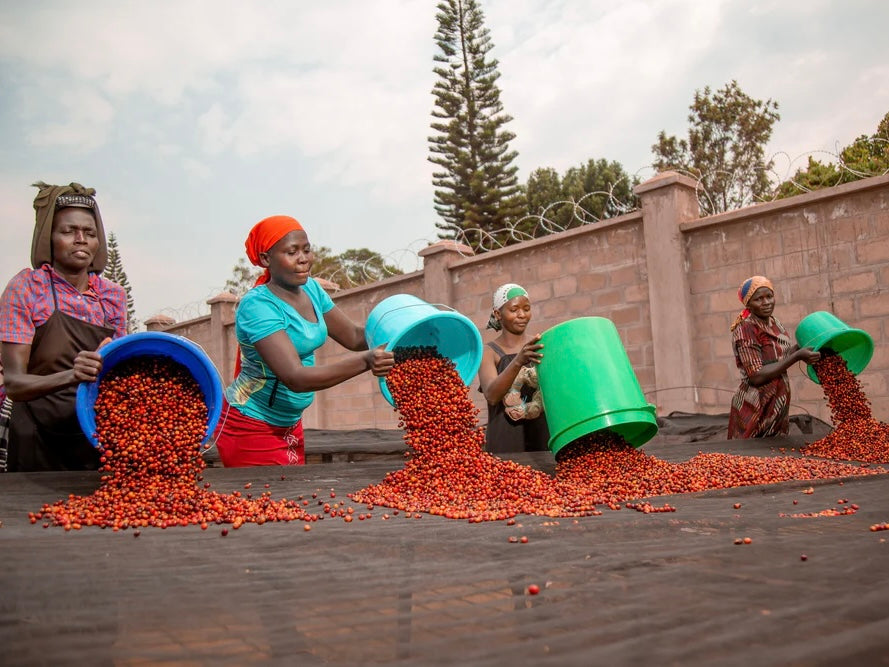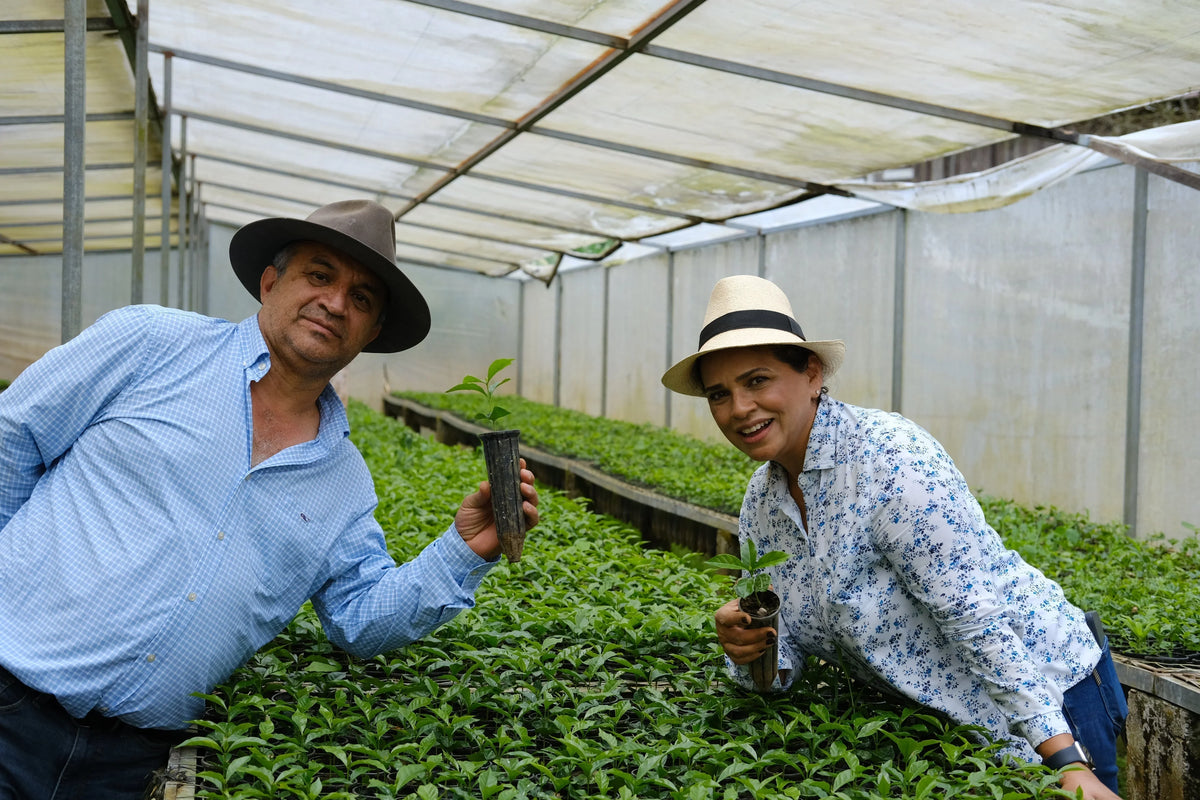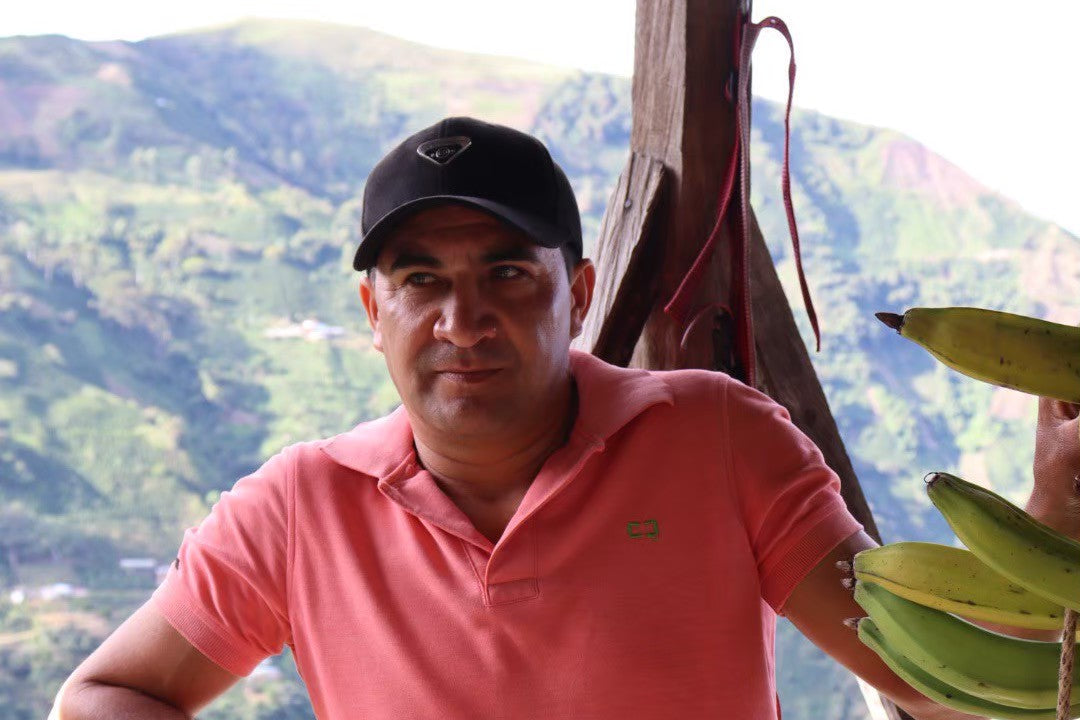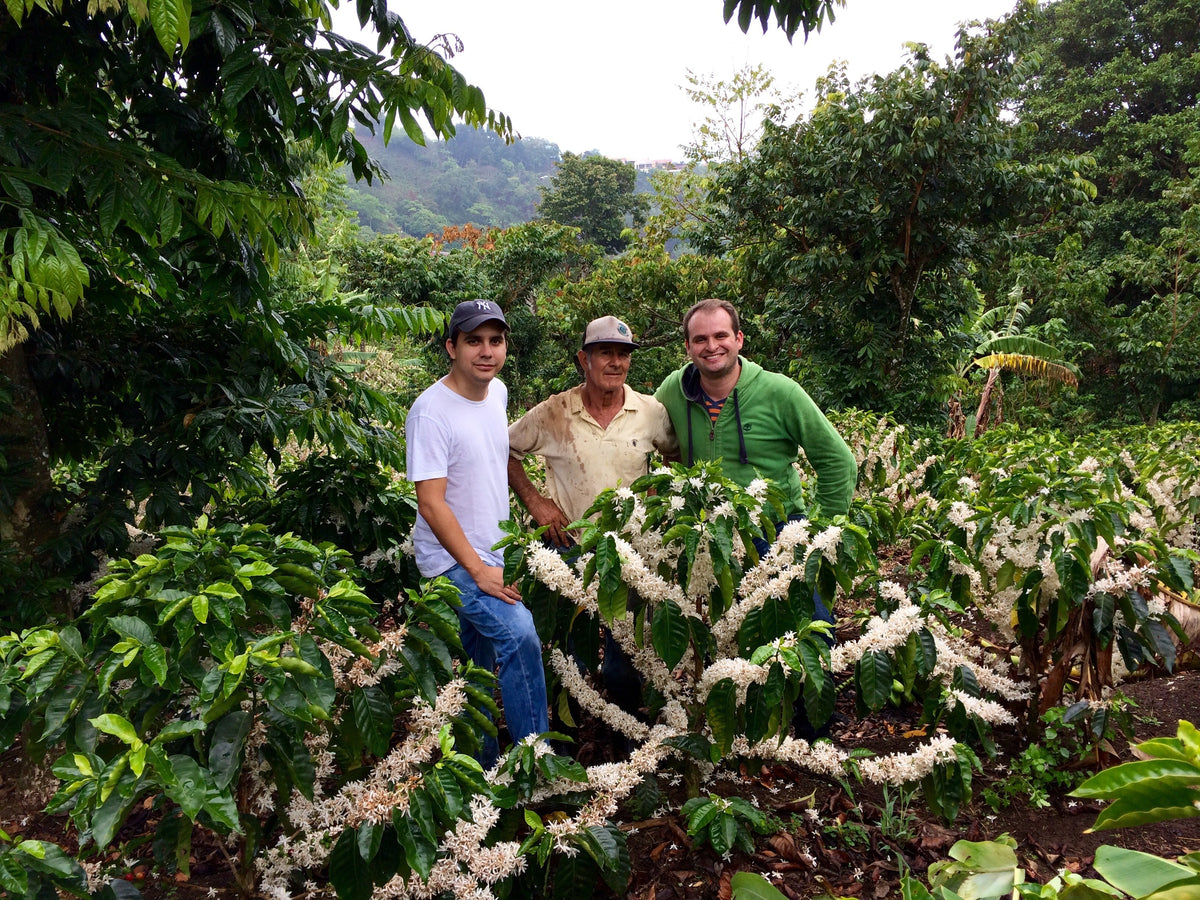
BULAMBULI / UGANDA
Bulambuli / Uganda
[Espresso roast]
Flavor Profile:
Fruit flavor like apple, flavor of strawberry jam, lingering finish and texture like oolong tea.
Apple, Strawberry jam, Oolong tea.
Click here for the online store product page
[Filter roast]
Fruit flavor of stone fruit, sweetness of nuts, texture like black tea.
Stone fruits, Nutty, Tea-like.
Click here for the online store product page
Producer: Bulambuli washing station members (Bulambuli washing station members)
Refinery: Bulambuli
Established: 2022
Locality: Mt.Elgon > Bulambuli
Country of origin: Uganda
Variety: SL-28, SL-14
Purification method: Espresso: Natural / Filter: Washed
Altitude: 1700-2300masl
Harvest time: 2023
This is the third year that we have been purchasing beans from Bulambuli Washing Station.
Through a fortunate encounter, I have been able to see the process of improving the quality of this coffee since the first year of the station's establishment.
Filter coffee is washed and refined, with a soft texture and a bright fruit flavor.
It's not too strong, has a moderate fruit flavor, and has a tea-like impression, making it an easy-to-drink coffee.
Coffee for espresso is naturally refined.
It has a characteristic sweet aroma and flavor that feels like it has been boiled down, and the crisp fruit flavor perfectly balances out the coffee. Like washed tea, it has a soft texture, but the flavors combine to create an impression similar to oolong tea.

This coffee is produced in the Bulambuli region of Mount Elgon in eastern Uganda.
Mount Elgon is a volcano that spans a vast area straddling the border between Kenya and Uganda. The coffee varieties grown here are mainly the SL variety, which is common in Kenya. Although Buranburi is close to western Kenya, it has slightly different characteristics.
Approximately 200 to 400 small-scale farmers cooperate in areas between 1700 and 2300 m above sea level. The high altitude contributes to the quality of the coffee beans, and the harvested cherries are transported to the Brambly washing station where they undergo rigorous sorting and quality checks before proceeding to the refining process. The cherries are then dried at washing stations or transported to drying yards in the lower-altitude town of Mbale.
Drying in different locations allows for better control of the drying process, which results in a refined coffee with the intended flavor profile. Washed coffee is primarily dried at stations, while naturally refined coffee is primarily dried in yards. 
Uganda's coffee production totals 4.2 million bags, or 250,000 tons. In Africa, it ranks second after Ethiopia and ranks among the top 10 in the world, with Robusta accounting for approximately 80% and Arabica accounting for the remaining 20%. Among them, high quality Arabica is still rare.
Most of the coffee produced in Uganda is simply processed in-house by producers, and most of the producers do not have access to know-how and knowledge in coffee production, so the quality of this coffee is not stable. I don't.
As a result, most are sold at unsustainably low prices. This type of coffee accounts for 85-90% of Uganda's production.
In the case of Bulambuli, the cherries collected at collection points and washing stations are refined while being controlled and recorded at each step from sorting to drying. This project has only been in its third year, but I already feel that the quality of the coffee is on par with coffee from neighboring Kenya and Ethiopia.
It's a wonderful coffee that I'm looking forward to seeing improve in quality in the future, and I think it proves that Ugandan coffee can demonstrate its high potential if the refining process is properly handled. 
The cherries are sourced and purchased from smallholder farmers in selected small towns and communities within about four sub-counties of Bulambuli district. Purchases may be made at small collection points or taken directly to the washing station.
The purchasing of cherries is supervised by the washing station manager or owner. The cherries delivered by the growers must be sorted by the growers themselves, but if that is not enough, there will be staff to sort them further.
In eastern Uganda, harvesting occurs from August to January. In the lowlands, harvesting lasts from August to October, and in the highlands from September to January.



